Excursions to Teach English in Remote Indian Villages
November 3, 2018
March 2016:
On one of my many mornings in Khajuraho, I decided to do a true Hindu poojah (ceremony) ritual… I came all the way to India to experience the culture, so why not!
Every child in Khajuraho does this poojah at least once for their protection from bad spirits and to culminate health and prosperity from their ancestors. The poojah involves a Brahmin reciting prayers and making offering to the gods (sweet fruits and ghee are thrown into a fire). And lastly, doing good karma acts for those in need. I even wore a traditional Indian kurta for the special ceremony.
Good deeds, such as giving food and donations to children and those in need, is a major part of Hindu religion — the generosity and caring nature of India’s culture is beautiful.
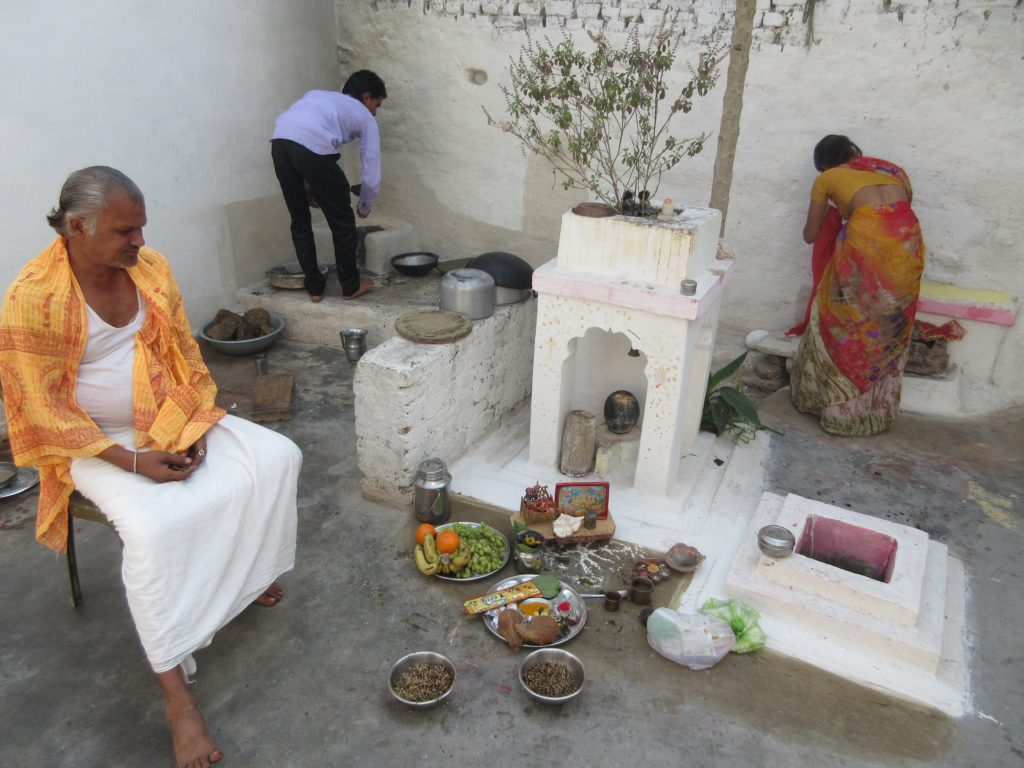
Preparing for the poojah. The Brahmin priest sitting on the left, and the offerings of sweets and fruits
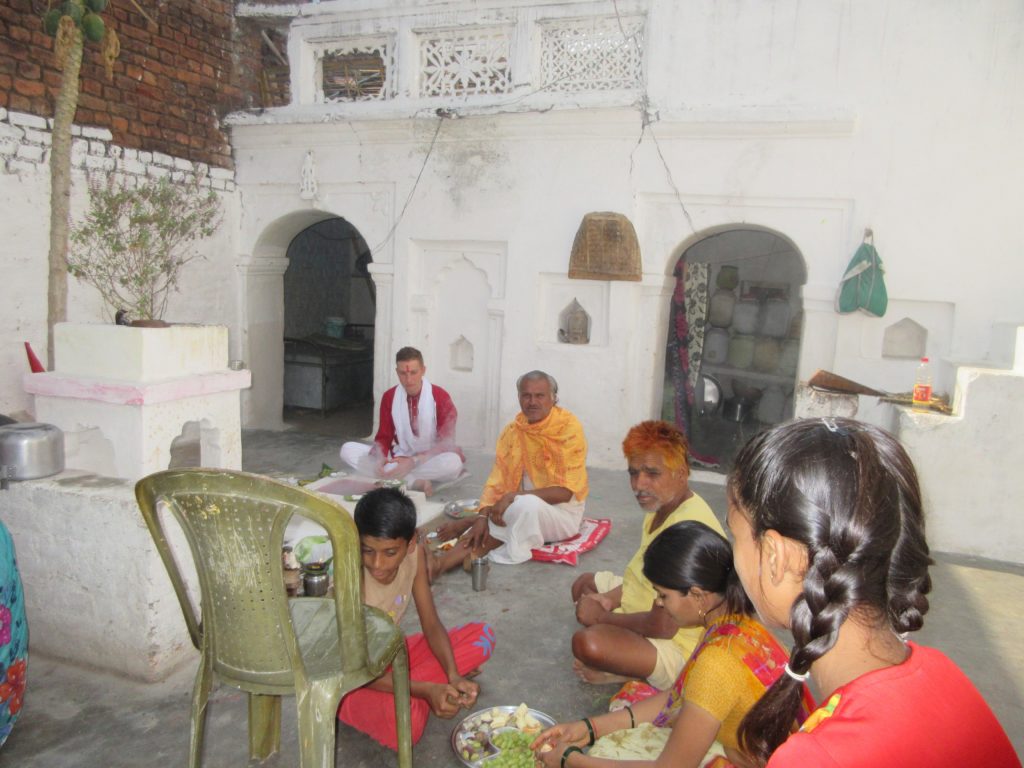
During the poojah, sitting by the altar.
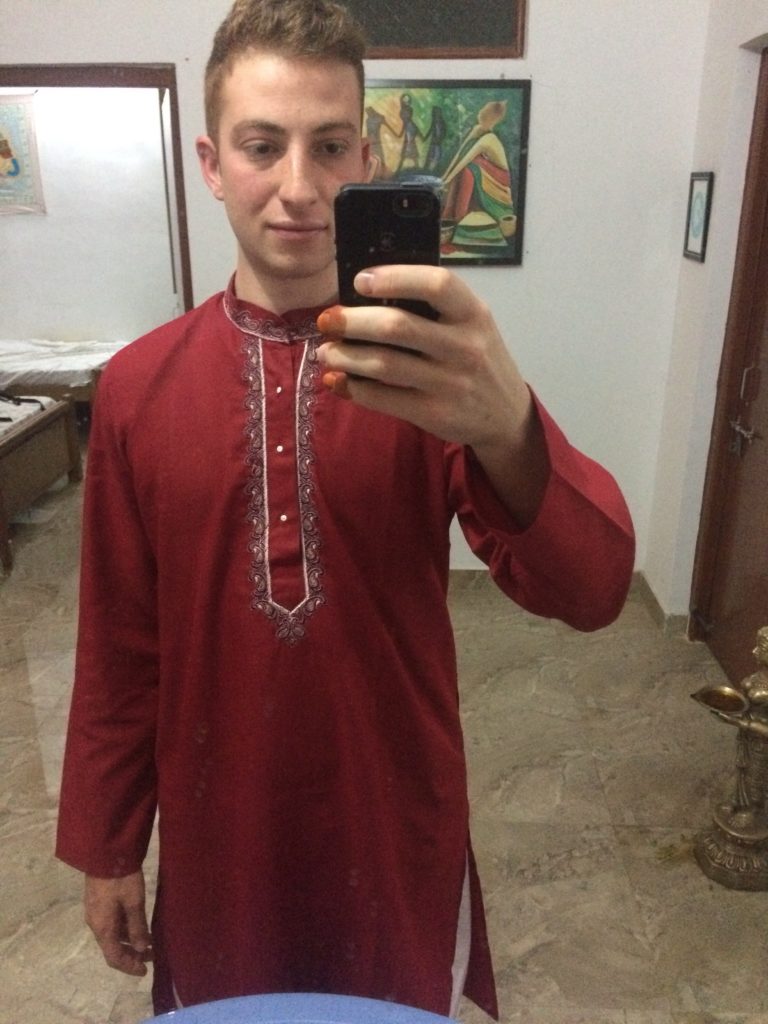
Wearing my Indian kurta with my fingers covered in henna. I had to deal with people asking if I had poop on my fingers for 4 weeks!
The ceremony touched my heart in a sensitive place. I didn’t feel the presence of any gods, or anything, but I felt the faith that sits deep in the hearts of these people. His entire family came to help set up for my ceremony, they were all so sincere and happy to be there and do their part for this religious purpose. As part of the ceremony, the ‘good karma’ acts was a natural progression. Rather than simply distributing fruits and sweets from the ceremony to the village children, I wanted to expand the impact of my act of kindness —
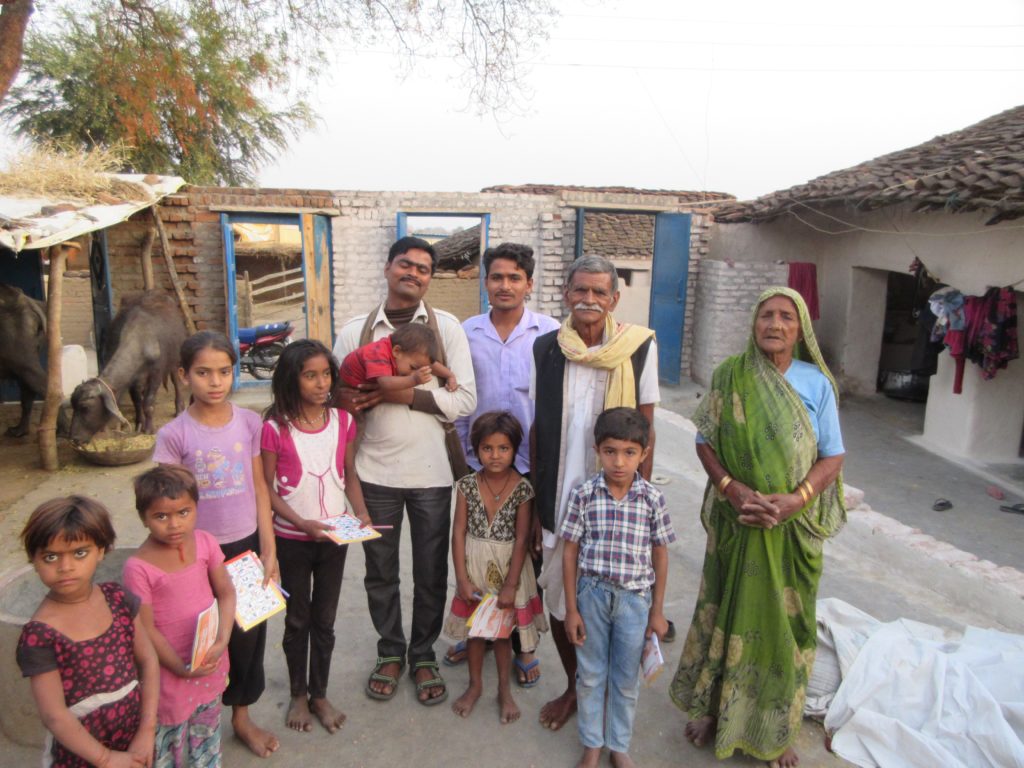
One family of children we gifted the learning materials to. The children may not look like happy, but these are the typical shy smiles of the village children.
I bought pencils, notebooks, and Hindi-English learning pamphlets, and we drove out to the remote village of Melowar. We identified 2 village families with children who were studying in school (i.e., more likely to make use of the school supplies), and gifted the supplies to the families at their homes. We encouraged the children to study (and teach to the others), we gave them English lessons, and gave out candies to celebrate this learning occasion! After gifting these learning materials to the children, it was heart-warming to see some of the kids run off and immediately start studying in their new booklets.
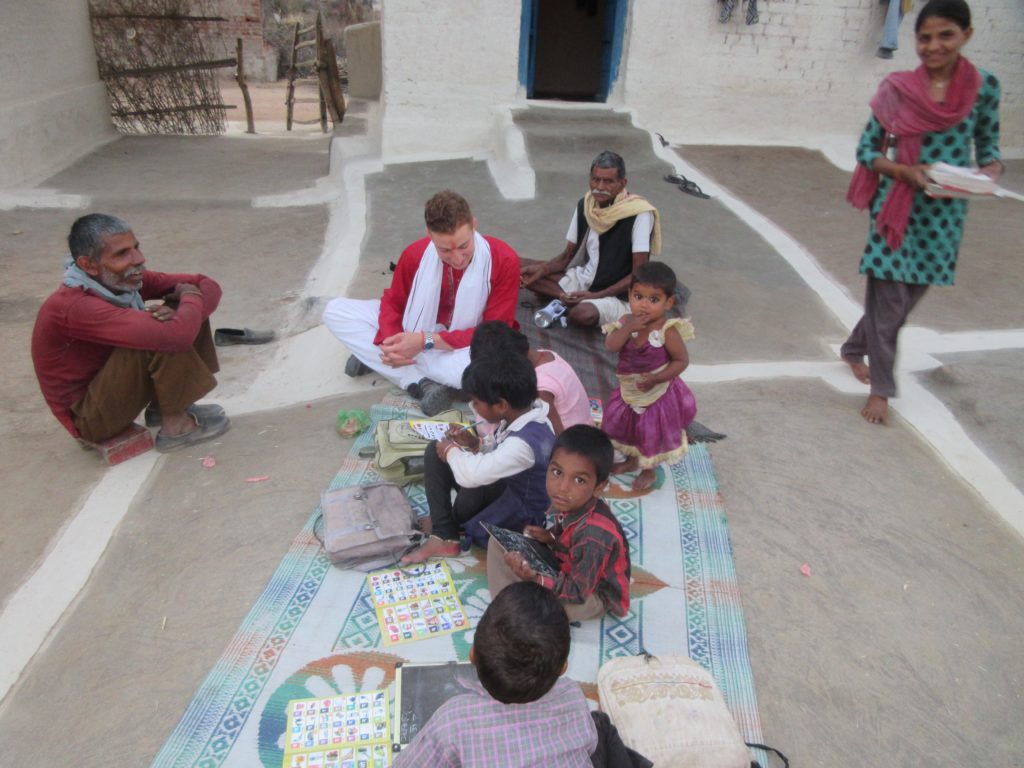
The second family of children we gifted learning materials to, and here I’m giving English lessons.
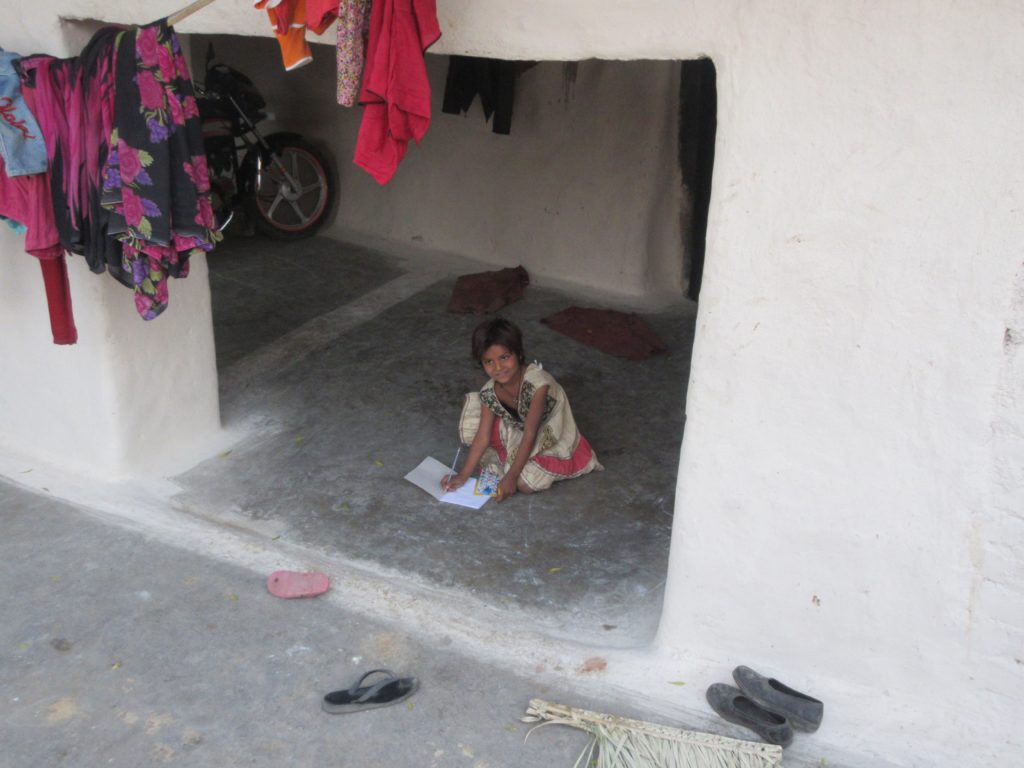
Sweet, young girl, who scurried off to study with her new English materials.
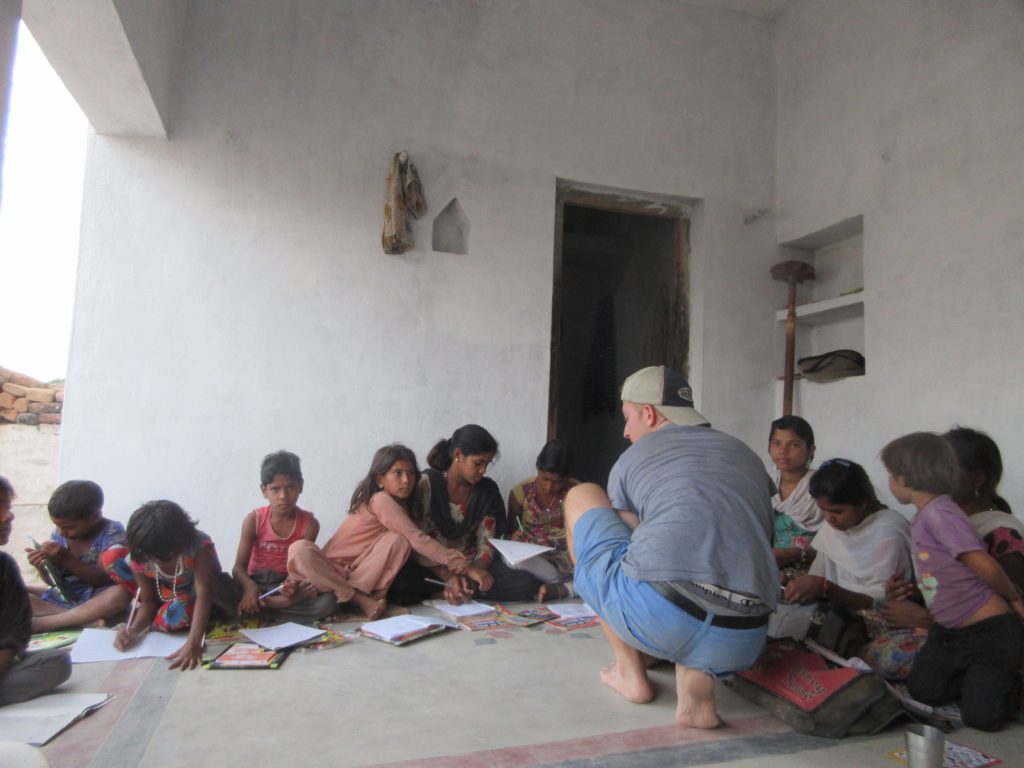
Giving English lessons to the children of one of the village families we gifted to.
As there is no electricity in the village, once it got dark out, we had to rely on a few candles or my sole headlamp to keep studying. We have such a privilege to be able to study until late in the evenings in our cities.
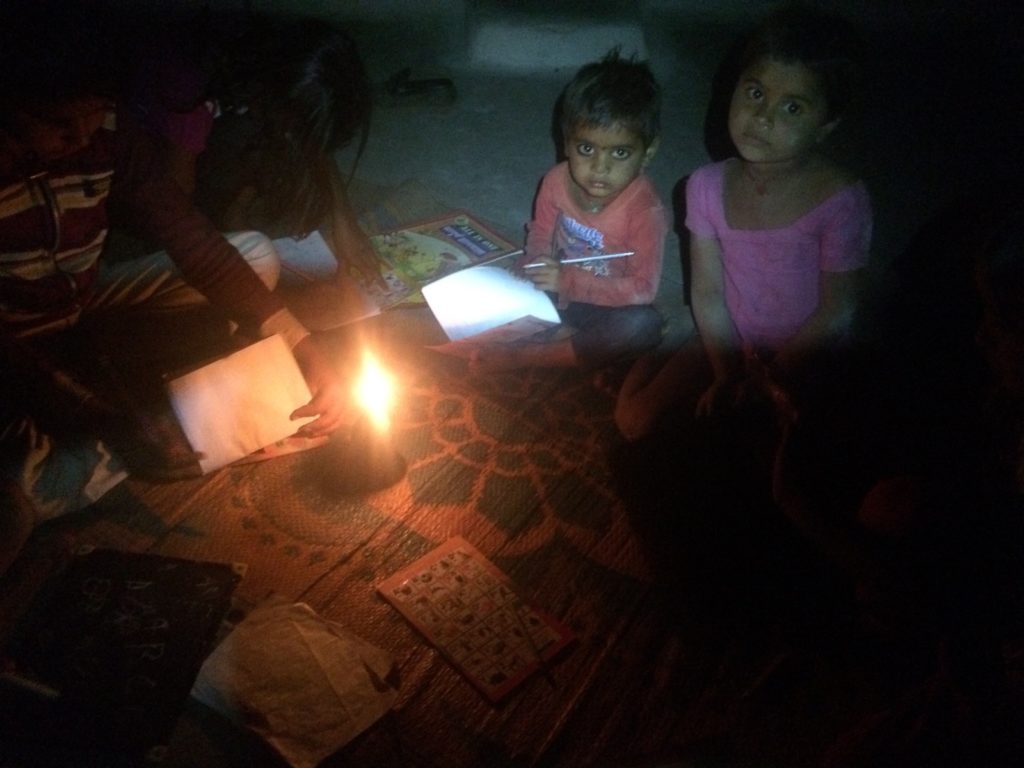
Giving English lessons under candle light, as the village doesn’t have electricity.
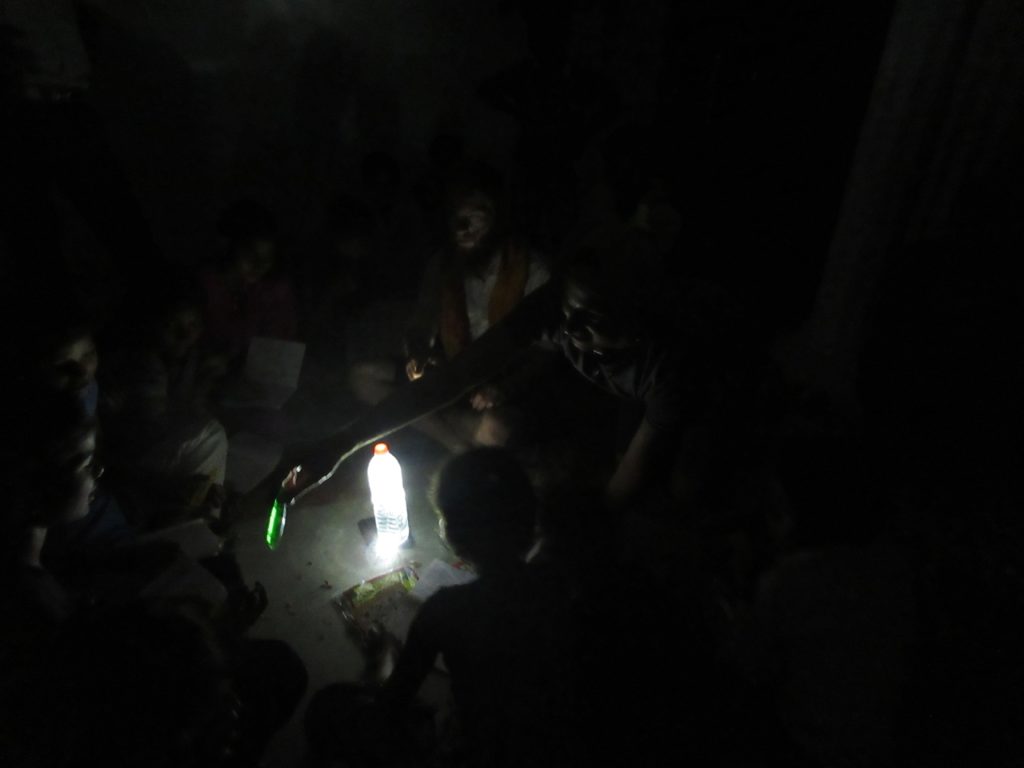
English lessons village using my make-shift lantern, a water bottle with my headlamp attached, as there’s no electricity in the village.
I had an immense feeling of ecstasy running through my body that evening. Giving to these children was so touching, particularly due to the level of intimacy of helping 2 specific families — explaining the importance of learning, spending time to teach some English, etc., —- rather than simply handing the school supplies out to random children in the streets.
Later that night, Kuldeep and I even returned to one of the family’s homes with fresh vegetables. (They cannot afford fresh vegetables other than potatoes and onions. In fact, they didn’t even know how to cook with the vegetables we brought them). We cooked with the family over a small fire in the darkness under the full moon light, as the village has no electricity. We ate together, and then they set up a cot with blanket for me to sleep outside beside their home… right beside the cows and buffaloes.
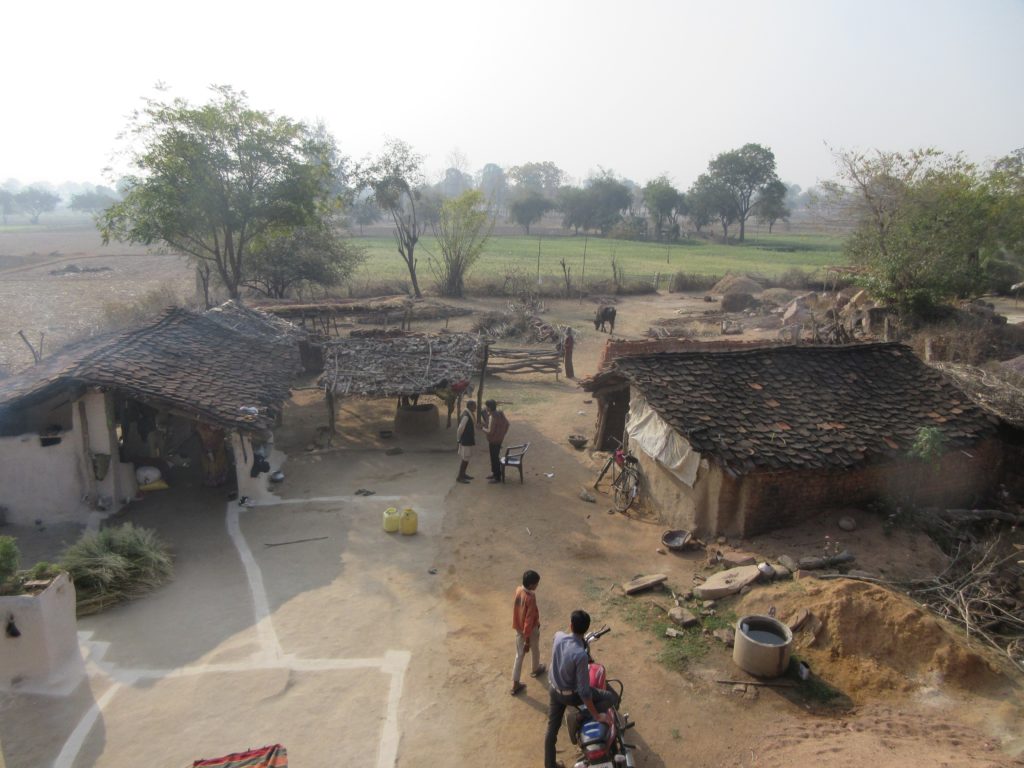
The mud brick home of the village family where we brought them fresh veggies, cooked with them,
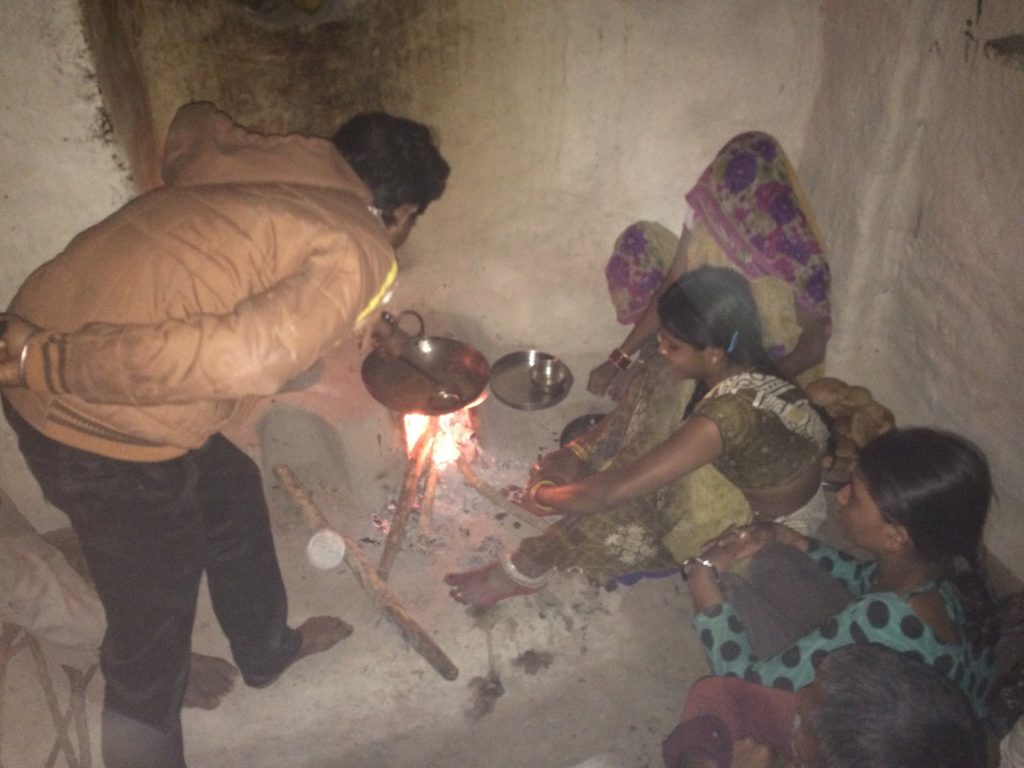
Cooking under natural fire with the village family.
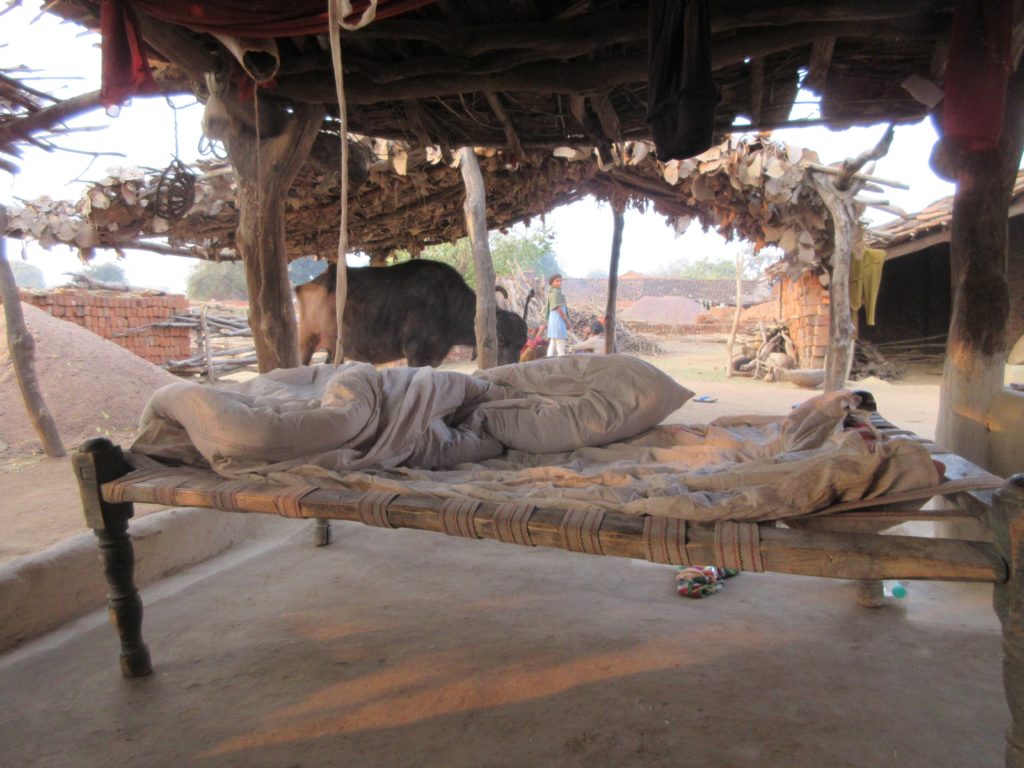
My bed for the night next to the buffalos and beneath the stars at the village home.
This poojah and good karma sparked a concerted effort to provide supplies to these families and contribute to the children’s English education. The following days, Kuldeep and I returned to Melowar village several more times to continue this effort. We provided school supplies and gave English lessons to the children of 2 additional village families, bringing the total number of children to 18 children 🙂
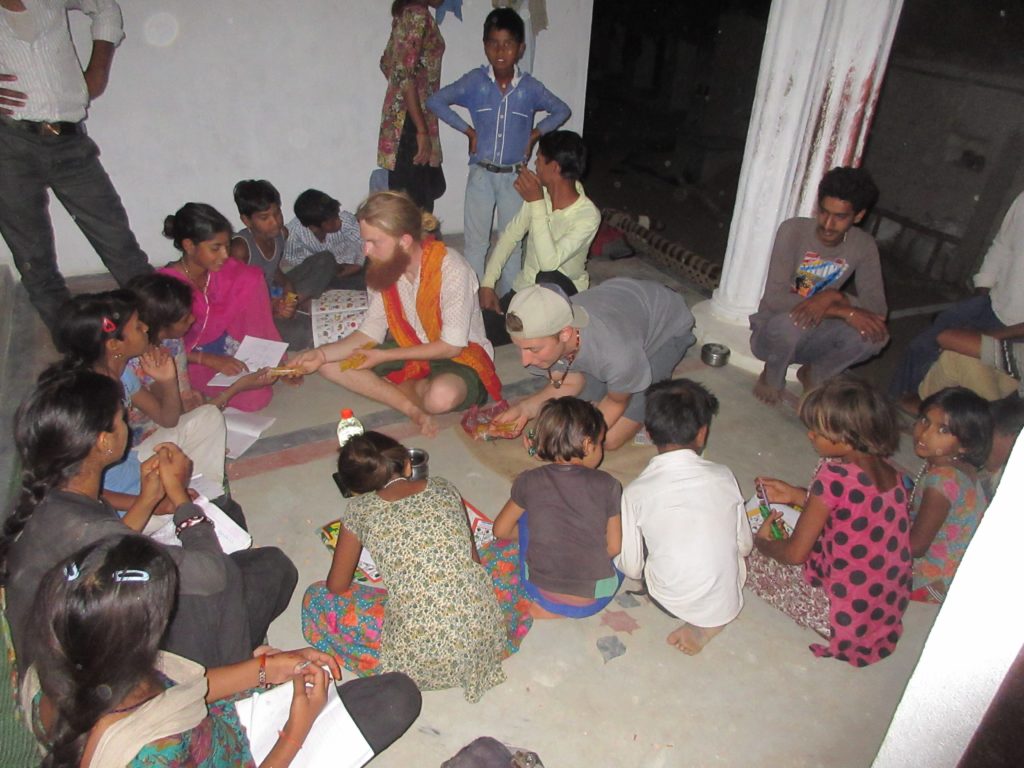
Recruited a volunteer to help give lessons to the children of the 18 children part of my program.
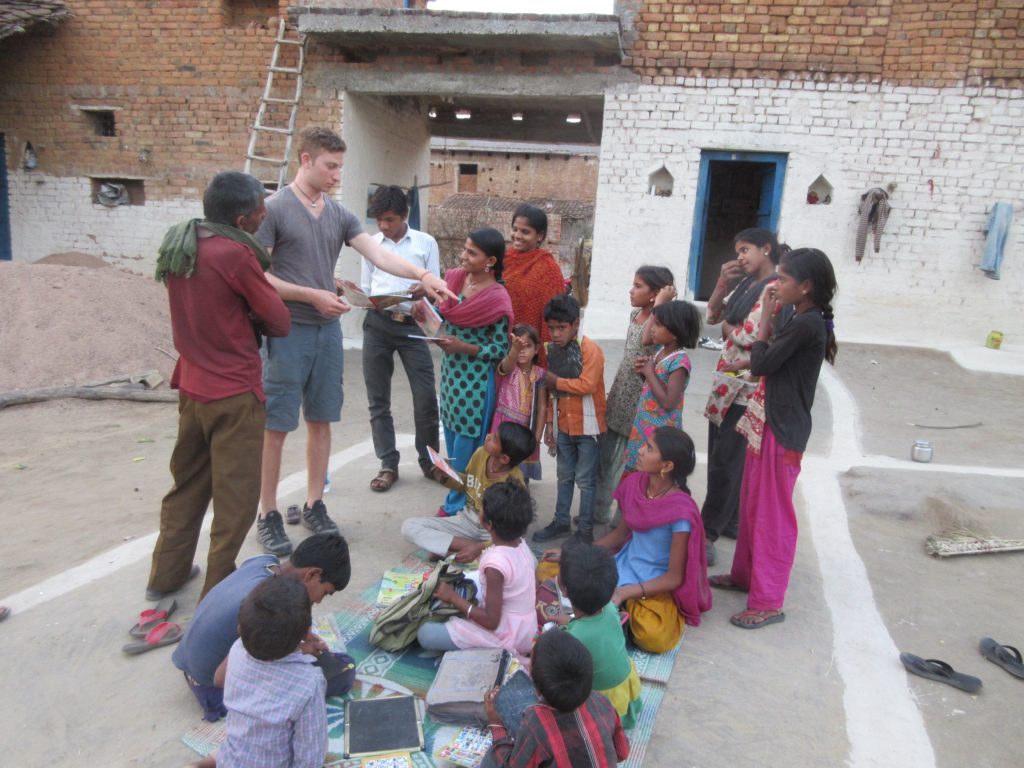
Returning to Melowar village to give English lessons to the children of one of the families part of my program.
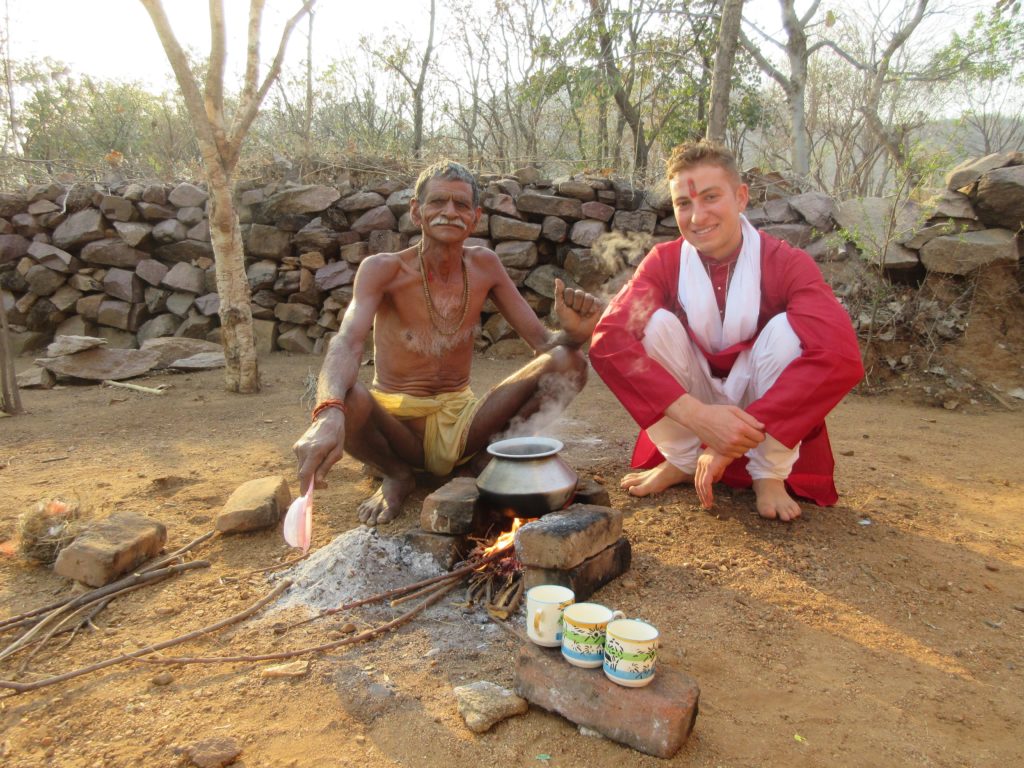
Gifting new tea cups to the Baba ji of the Melowar village ashram.
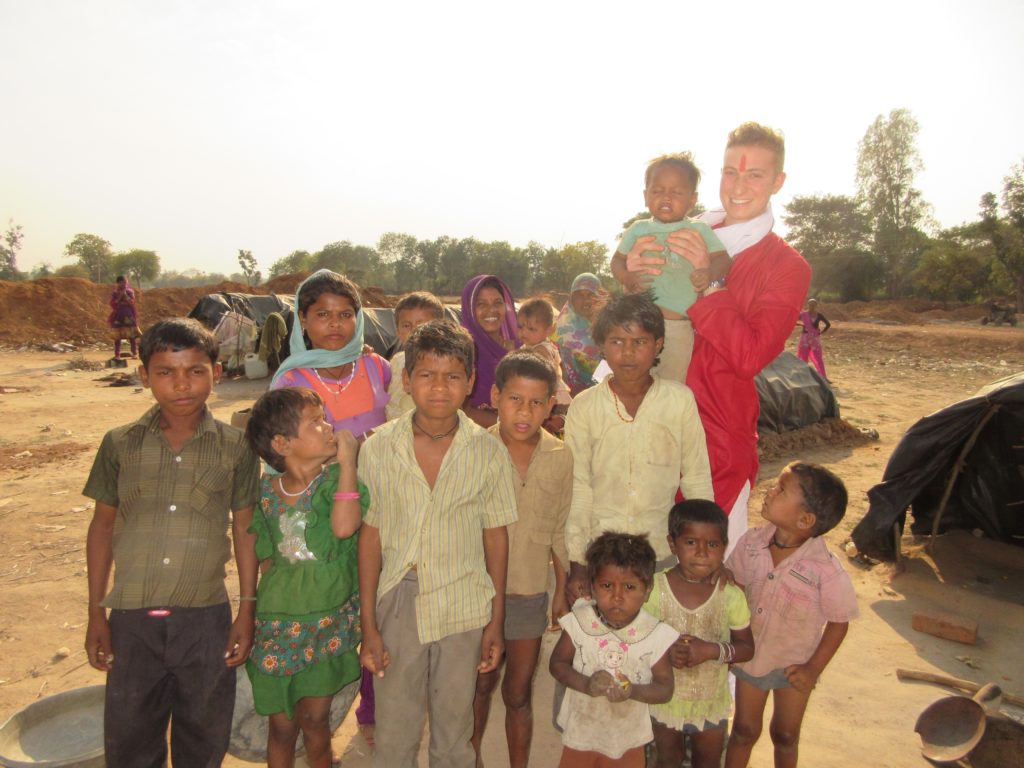
Spending time with the children of a nomadic families.
In part 3 of this series of posts of my month in Khajuraho, I’ll share the other eye-opening experiences from my time with Kuldeep, including Indian village weddings!
BE THE FIRST TO COMMENT